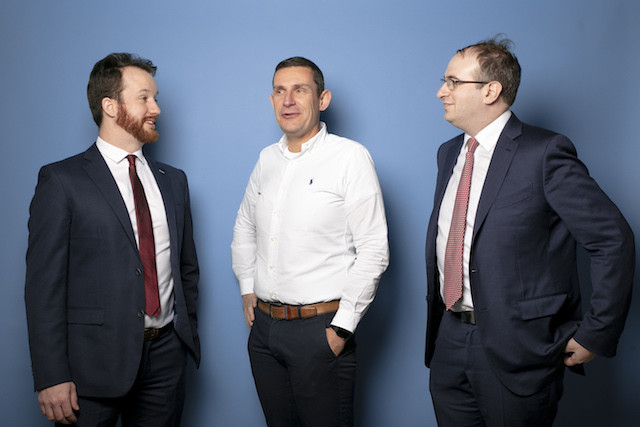“We need an organisation with 5-10 people within a year,” Bradford managing director Patrick van Put told Delano during a country visit on 24 January, adding: “We’re reconsidering and restarting the business focus.”
Bradford is part of American Industrial Acquisition Corporation, a portfolio of company holdings based all over Europe.
Based in the Netherlands, Bradford began building a space systems group two years ago. Around 2,000 of Bradford’s products are currently in space and its ecaps high performance green propulsion thrusters are fitted on 15 spacecraft.
The company made its third acquisition in purchasing DSI in November 2018 to take advantage of its water-based electrothermal propulsion system, or Comet, which is used on four systems on spacecraft in orbit.
“DSI had some great products that fit very well in our existing product lines,” Bradford director Ian Fichtenbaum explained.
But that was not the only appeal. “The other part is it brings us a wealth of customers we weren’t able to get traction with. This is an in-road for selling more products and this is already happening.”
Electrics for deep space missions
US-based DSI opened its Luxembourg office in 2015, shortly before the economy ministry announced the SpaceResources.lu initiative, aimed at creating a space mining eco-system and legal and financial framework in Luxembourg. Until now, this operation has been run by a single person, Alexander Finch. “What Alexander has been working on until now was avionics, electrics for deep space missions. This was something that had some customer interest in itself […] There’s also a need for deep space communication which we also have experts on to build,” Fichtenbaum said.
In future, the company is looking to collaborate with experts in Luxembourg institutions for deep space mission applications. “It doesn’t have to be asteroid mining. It could be radio science on the dark side of the moon, propeller generation or landing on asteroids,” van Put said.
Luxembourg’s deep pockets are also part of the appeal for retaining an office in the grand duchy. The funding situation is fragile in Europe, where 85% of startup business revenues are institutionally raised, exposing suppliers like Bradford to shortfalls if funding is pulled on their customers.
Though van Put says the firm is “cash-flow positive—we’ve our own cash resources and human resources,” he expects a consolidation in the market in the next two years which could mean “some of our customers fail.”
Financial resources
Unlike some European countries, with a more conservative approach to space investment, Luxembourg is going against the grain, however.
“They almost doubled the financial resources,” the managing director said, referring to the Luxembourg Space Fund, scheduled for launch in 2019. This could come in handy for Bradford. “If we grow, our primary focus will be institutional funds to help us grow organically and develop new products, which is why Luxembourg is important,” van Put said.
For a systems group focused on acquisitions, one other attraction to Luxembourg is the 20+ newspace companies which established in Luxembourg since the SpaceResources.lu initiative launch. “We’re looking around continuously. We’ve a list of companies,” van Put said, refusing to disclose which firm would be acquisition number 4. “All of them will fit the same strategy: being the number 1 European or worldwide independent sub systems supplier.”
